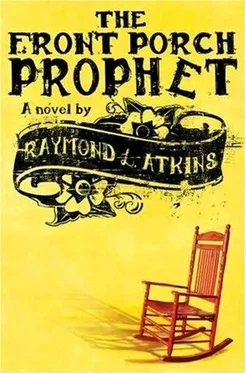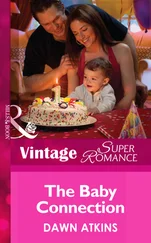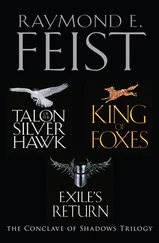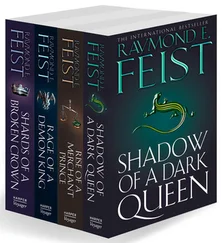“What’s wrong, A.J.?” Maggie asked. “You’ve been quiet all day.” The west end of the dam was in ruin, and the water roared through the breach. They sat in the causeway on the east side, trailing their toes in the green, cool water. The day had been a pearl, and the only mar on it was the sunburn Maggie had acquired in an area where the sun does not normally shine. Hopefully, she would not have to explain it to her mama.
“We need to talk about something,” he blurted out. The words were abrupt, not at all what he had in mind. He stood and looked out over the dam, silently pledging to throw himself into the cataract if he screwed this up. He knew a spot where the rusted rebar would be bound to impale him.
“Tell me what it is,” said Maggie with concern in her voice. She arose and stood next to him.
“I need for you to marry me,” was his reply. A soft breeze brushed the surface of the lake. He studied the far shore. His fist was in the pocket of his denim cutoffs, clenched around an engagement ring. He intended to fling it far if she declined to wed.
A.J. risked a quick peek out of the corner of his eye at Maggie. She was looking at him and smiling. She took his hand and squeezed it gently, and he removed the ring from his pocket and placed it on her finger. Her eyes widened a touch in surprise, but she was still smiling.
“Pretty sure of yourself, weren’t you, Farm Boy?” she asked. The ring was too large, so she slipped it on her thumb for safekeeping.
“You haven’t said yes,” he pointed out.
“Yes,” she responded.
Thus their paths merged, and from that point on they traveled the same road. They spent the remainder of the summer and autumn preparing for their leap of love and faith, and they pledged their troth on a cold January day in a simple wedding attended by family and friends. John Robert was the best man, and Maggie’s maids of honor were her many sisters. The reception was catered by Granmama, who made the fanciest dishes she knew: cocktail wieners in barbecue sauce, cheese balls, and little cucumber sandwiches. The cake was made by Maggie’s sister, Eudora Welty, and it was magnificent even if the layers did bear the vaguest resemblance to coffee cans, which is what she had used for pans. Emmett Callahan gave his daughter away and in deference to the solemnity of the ceremony only glared momentarily at A.J. The rings were exchanged, the veil lifted, and the kiss given and received. And then it was done. The two became as one in the eyes of God and the governor of Georgia. They became the current incarnation of a devotion that spanned the long ages of the world, a fidelity destined to last until the end.
Now, years later, A.J. softly kissed his sleeping wife. He dressed quietly and went downstairs. He poured a cup of coffee brewed by John Robert. Then he stepped on the porch to greet his father. The elder Longstreet was busy cleaning the fish he had brought home the previous evening. They had spent the night in a bucket of water and now were taking the final step to becoming full-fledged members of the food chain.
“Morning, John Robert,” A.J. said, settling down in his rocker. He knew that John Robert had been up for some time; he was an early riser even by A.J.’s standards. Back when he was employed, A.J. would arrive home from the sawmill around four in the morning, and invariably he would be greeted by his father, who would be busying around on some small project or other while waiting patiently for the sluggards of the world to arise.
“Thought you were going to stay in bed all day,” John Robert replied. The sun had not yet risen. His razor sharp knife flashed with quick, sure movements.
“I’m getting lazy since I became unemployed,” A.J. said, taking a sip of coffee. It was painfully strong.
“I heard about that yesterday in town,” John Robert grunted. He finished filleting the last fish and laid the grayish-white squares of bass in the pan along with the others. They would make a fine supper that evening, served fried alongside cabbage slaw, salty fried potatoes, and hush puppies made of sweet yellow cornmeal. Admittedly, the fare would be better for the soul than for the heart, but no one lived forever. “They didn’t waste any time,” John Robert continued, rinsing his hands in the bucket.
“No, they didn’t,” A.J. agreed, taking another sip of coffee. “They are very efficient people.” He felt a coffee ground on his tongue and spit the offending particle over the porch rail. John Robert made coffee in the old way, by boiling a handful of grounds in a pot that had been timeworn when Granmama was still a slip of a girl. The resulting brew was not for the faint of heart.
There was no enmity in A.J.’s voice, and he wished no harm to the people from Alabama Southern. Not much, anyway. Maybe the odd broken leg or unfaithful wife, just to smooth out any unlevel spots in their bloodsucking, tree-sawing karmas.
John Robert picked up his pan of fish and headed into the kitchen. The screen door squeaked a second time as A.J. followed him in. The elder Longstreet rinsed the fish at the sink, then put them in the refrigerator to chill. He poured himself a cup of coffee and sat at the table.
In the harsh fluorescent light, he looked his age. This was a recent phenomenon; he had aged well until this year, the heart attack notwithstanding. Now he looked like an old man, and it was hard for A.J. to get comfortable with the idea.
“Have you given any thought to what you’re going to do now?” John Robert asked, looking at his son.
“I thought I might borrow Slim’s big shotgun and go kill them all in their beds,” A.J. replied.
“Will you be back by supper, or do you want me to make you a plate?” John Robert inquired, surprising A.J. Most of his attempts at kidding with his father were met with deadpan looks and stony silences.
“I’ll be back in time,” A.J. said with a broad grin.
“Want some breakfast?”
“No, I don’t think so.” A.J.’s years of shift work had left his eating schedule in ruin, and he tended to eat at different times than most people. He looked at the clock on the wall and noted it was time to be moving along. He had awakened this morning wishing he had not promised Eugene a visit. He was ashamed of this reluctance and strengthened his resolve, but he hoped to get the visit completed early in the day. He stood and stretched.
“I’m going up to see Eugene for a while,” he told his father. “I should be back around lunch. Maggie’s worn out, so let her sleep. She can go to church twice next week.”
“How is Eugene doing?” asked John Robert.
“I don’t think he has very long.”
“Tell him I’m thinking about him,” John Robert said in a somber tone. “Tell him if I can help him, to just let me know.”
“I’ll tell him.” A.J. left the house and climbed into his truck. It was balky in the cool morning, but he coaxed it to life after a few false starts and made the short drive to town. As he drove through Sequoyah, he noticed several vehicles parked outside of the Follow Me, and I Shall Make You Fishers of Pecan Pie Drive-In. One of them was John McCord’s truck. A.J. liked his loose ends tidied, so he entered and sat at the counter next to his former boss.
“A.J.,” John said, sounding truly happy to see his former employee. “Hoghead, bring some coffee and collision mats for A.J.” Hoghead appeared wearing a coat and tie and whistling what may have been “Will the Circle Be Unbroken,” but with his whistling skills it was hard to be certain. Sunday morning coffee and collision mats comprised Hoghead’s ministry. He opened early and provided them free of charge so that all comers would be fed and alert when they got to church. Around ten o’clock he would close up and go down to the Rapture Preparation Holiness Temple to get his weekly dose of rapture preparation.
Читать дальше












